MRI Scan In Nawanshahr: Future of Health Imaging
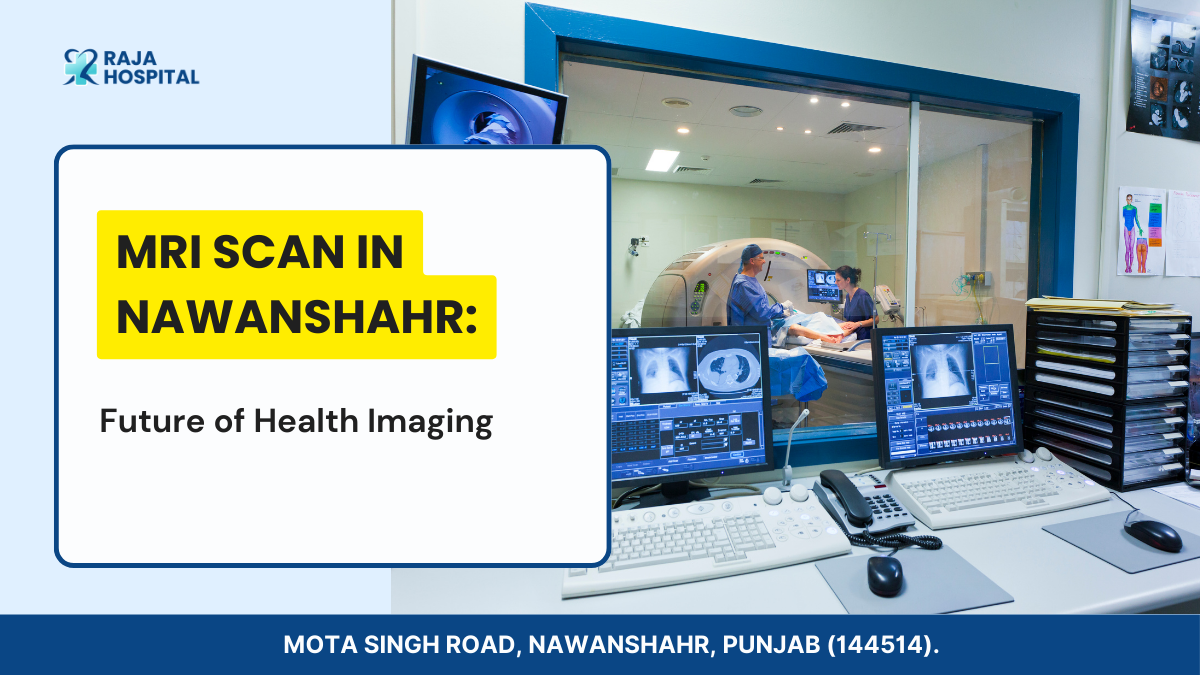
REVIEWED BY DR. AMARINDER SINGH SAINI (MBBS, MD RADIO DIAGNOSIS) on 20th February 2024.
Great news for Nawanshahr residents! Access to affordable MRI scans is now available in our community. MRI scans are advanced medical imaging tests that help doctors diagnose and monitor various health conditions. With this new option, residents can now receive high-quality scans without breaking the bank. This development marks a positive step towards enhancing healthcare accessibility in our area. Take charge of your health with affordable MRI scans right here in Nawanshahr!
What is an MRI?
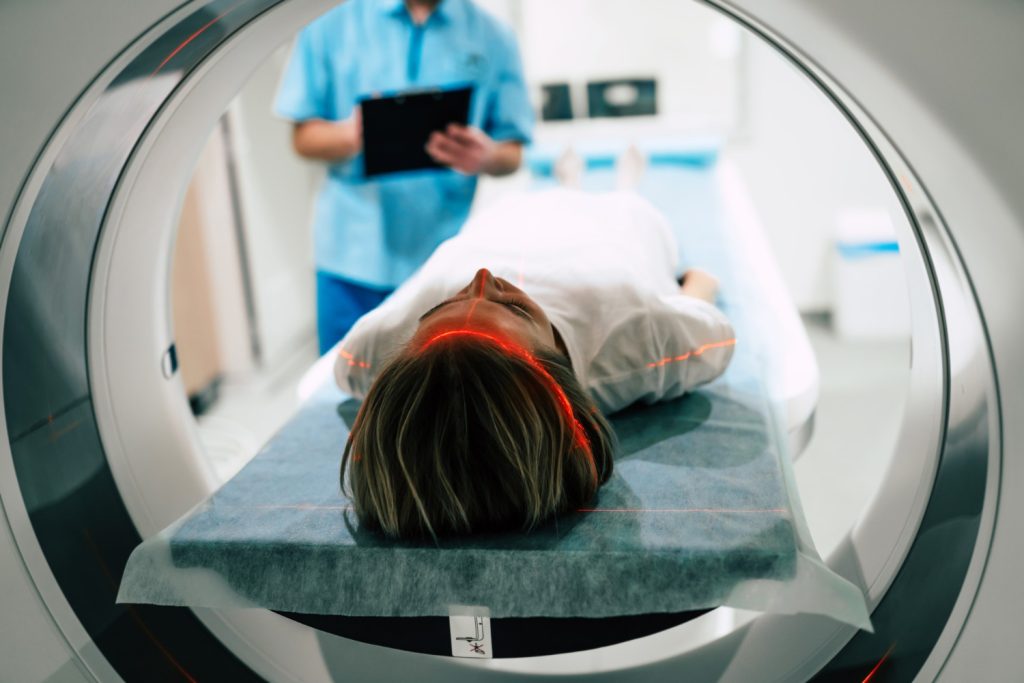
An MRI stands for Magnetic Resonance Imaging, is a special kind of medical test that helps doctors take detailed pictures inside your body without using X-rays. It’s like a super-powered camera that uses strong magnets and radio waves instead of regular light.
When you go for an MRI, you lie down on a comfy table that slides into a large, tubular machine. This machine creates a strong magnetic field around you. The magnets make the water molecules in your body act in a special way. Then, the machine sends radio waves into your body, and when the radio waves are turned off, the water molecules send back signals.
The MRI machine picks up these signals and turns them into incredibly detailed images. It’s like creating a map of the inside of your body, helping doctors see your organs, muscles, and even your brain with great clarity.
The best part is that an MRI doesn’t use any harmful radiation, making it a safe way for doctors to get a closer look inside you and figure out what might be going on with your health.
What can an MRI diagnose?
It is a powerful medical tool that helps doctors see detailed images of the body. Here are some common things an MRI can diagnose:
Brain Issues:
- It can detect problems like tumors, bleeding, or swelling in the brain.
- It is useful for studying conditions like Alzheimer’s or multiple sclerosis.
Spine Conditions:
- Helps find issues like herniated discs, spinal cord injuries, or abnormalities.
- Useful for investigating back pain or neck problems.
Joint Problems:
- Useful for checking injuries or damage in joints like the knee, shoulder, or hip.
- Helps in diagnosing conditions such as arthritis or torn ligaments.
Internal Organs:
- Examine the liver, kidneys, and other organs for tumors or abnormalities.
- Useful for identifying issues like cysts or infections.
Heart Conditions:
- Provides detailed images of the heart to detect problems like heart attacks or heart valve issues.
Cancer Detection:
- It helps locate tumors in various parts of the body.
- Assists in planning cancer treatments.
Blood Vessels:
- It can visualize blood vessels, helping to detect blockages or aneurysms.
- Useful for understanding blood flow in the body.
Muscle and Soft Tissue Problems:
- Aids in identifying injuries or abnormalities in muscles, tendons, and ligaments.
- Useful for conditions like torn muscles or inflammation.
Infections and Inflammation:
- Detects signs of infections or inflammation in different parts of the body.
An MRI is a non-invasive and safe procedure that provides detailed images, helping doctors to diagnose and plan appropriate treatments for various medical conditions.
Detection of Major depression disorder (MDD) and Social anxiety disorder (SAD)

However, MRI can play a role in understanding mental health conditions such as Major Depressive Disorder (MDD) and Social Anxiety Disorder (SAD).
For Major depression disorder (MDD):
- MRI can reveal changes in brain structure and function related to depression.
- It can identify abnormalities in the hippocampus and amygdala, brain areas linked to emotions.
- These findings assist in diagnosing and understanding the physical aspects of depression.
For Social anxiety disorder (SAD):
- Functional MRI (fMRI) can observe brain activity during social situations.
- Differences in brain activation patterns in individuals with social anxiety can be detected.
- This helps researchers and clinicians understand the neural mechanisms underlying social anxiety.
MRI isn’t a direct diagnostic tool for MDD or SAD but helps advance our understanding of the brain in these conditions. Diagnosing mental health disorders often involves clinical assessments, interviews, and sometimes MRI to rule out other medical conditions.
When Do Doctors Recommend an MRI Scan?
Doctors recommend an MRI scan when they need detailed pictures of the inside of your body. It helps doctors see organs, tissues, and bones in great detail without surgery.
MRIs are frequently recommended for the following reasons:
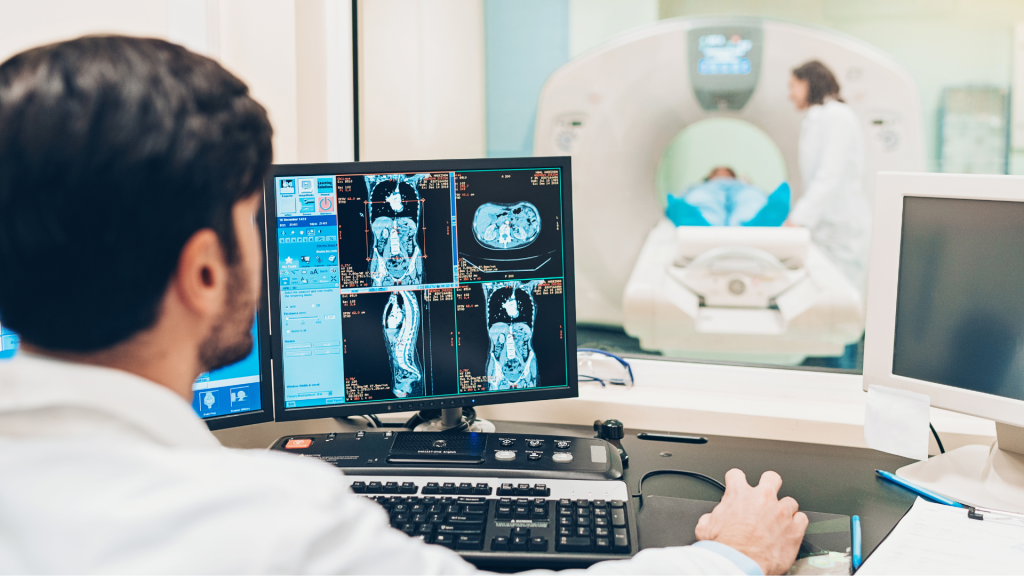
- To Check for Injuries: If you’ve hurt yourself, like a sprained ankle or injured knee, doctors might use an MRI to see the extent of the damage.
- To Look for Diseases: MRI scans can help spot diseases like cancer, tumors, or infections in your body. Doctors can see if there are any unusual growths or abnormalities that need attention.
- To Diagnose Brain Conditions: If you have headaches, seizures, or other brain-related issues, an MRI can provide clear images of your brain. This helps doctors see if there are any problems like tumors, bleeding, or nerve damage.
- To Examine the Spine: If you have back pain or neck pain, an MRI can show the discs, nerves, and bones in your spine. This helps doctors figure out what might be causing your discomfort.
- To Check on Internal Organs: MRI scans can also look at your heart, liver, kidneys, and other organs. Doctors use these images to diagnose problems and plan treatments.
An MRI is painless and doesn’t involve radiation. It’s a safe way for doctors to get a closer look at what’s happening inside your body to figure out the best way to help you feel better. So It’s a valuable tool for diagnosing and treating various medical conditions.
How to Prepare for an MRI Scan?
Preparing for an MRI scan is a simple process, and here are some easy-to-follow steps:
- Wear loose-fitting, metal-free clothing.
- Remove jewelry, watches, and accessories with metal.
- Inform about any metal implants or pacemakers.
- Check if there are specific instructions about eating or drinking.
- Communicate any medications you are taking.
- Notify about claustrophobia or anxiety.
- Inform if there’s a possibility of pregnancy.
- Arrive on time for paperwork and instructions.
- Consider bringing a friend or family member for support.
- Be honest about any concerns with the MRI technologist.
By following these simple steps, you can help ensure a smooth and successful experience during your MRI scan
Why metals are not allowed in MRI scans?
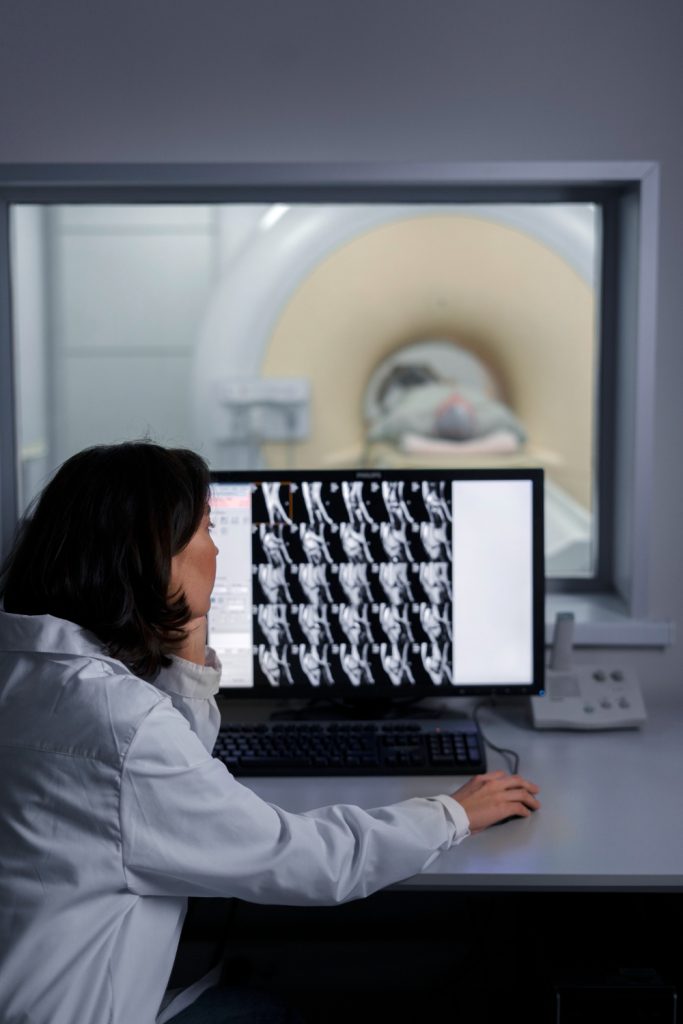
MRI machines use powerful magnets to create detailed images inside your body. Metals can interfere with this process and cause problems. When you have metal in your body, like from surgical implants, it can get attracted to the MRI machine, leading to serious injuries or damage. Think of it like a strong magnet pulling on metal objects – it’s not safe!
So, to keep everyone safe during an MRI, it’s important to avoid bringing in anything metallic, like jewelry, watches, or even clothing with metal parts. This helps ensure that the MRI machine can do its job without any risks to you or others.
Who Should Avoid MRI Scan?
MRI scans are generally safe for most people, but it’s important to talk to your doctor if you have any concerns or if you fall into any of these categories.
- Pregnant women, especially in the early stages.
- Individuals with certain metal implants like pacemakers or cochlear implants.
- People who experience severe claustrophobia.
- Those with a known allergy to gadolinium, a contrast dye used in some MRI scans.
- Individuals with severe kidney problems may need extra precautions.
All these things can help you to understand the risks and benefits and make the best decision for your health.
Why Are MRI Scans Considered Expensive?
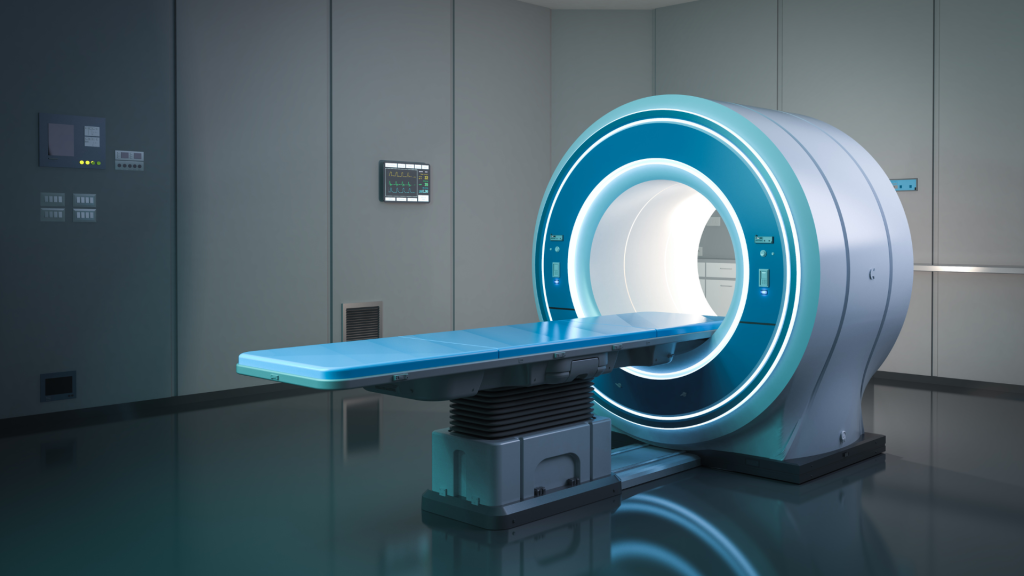
MRI scans are expensive for a few key reasons. These factors contribute to the overall cost of the procedure.
- Complex technology: MRI machines use advanced and expensive components.
- Specialized staff: Trained professionals like radiologists add to the cost.
- High energy consumption: Powerful magnets and pulses require a lot of electricity.
- Maintenance costs: Regular upkeep and software updates contribute to expenses.
- Space requirements: Large machines need dedicated facilities for accurate imaging.
- Regulatory compliance: Meeting safety and quality standards adds to the overall cost.
- Limited accessibility: High demand and a limited number of machines impact prices.
But always remember nothing cost more than a life, so get medical attention whenever you feel something unusual.
FAQ
Conclusion
In conclusion, MRI scans are valuable diagnostic tools, offering detailed insights into various medical conditions. Understanding the preparation, restrictions, and costs associated with MRI scans ensures a smoother and more informed healthcare experience for patients.
Our hospital, equipped with a cutting-edge radiology specialist department, is committed to providing comprehensive and accessible healthcare services. MRI (Magnetic Resonance Imaging) is a powerful diagnostic tool that allows for detailed examination of various body parts, aiding in the early detection and accurate diagnosis of medical conditions.
Call us now at (+91) 85588-99998 to schedule your MRI appointment or to learn more about our services. Let Raja Hospital be your trusted partner in healthcare.
